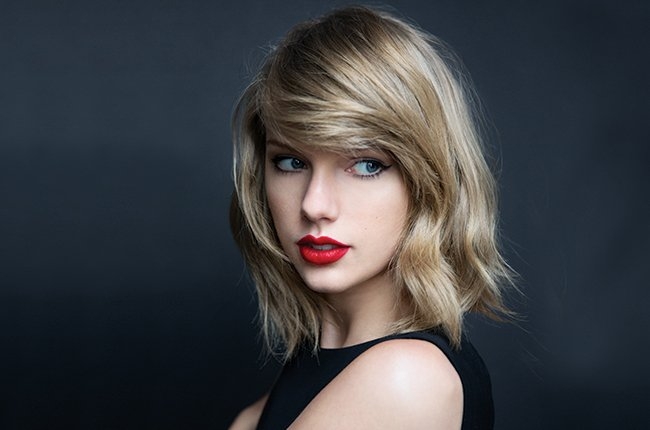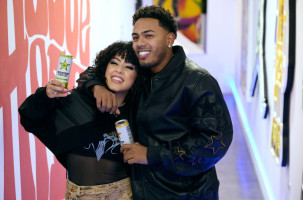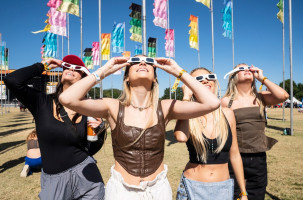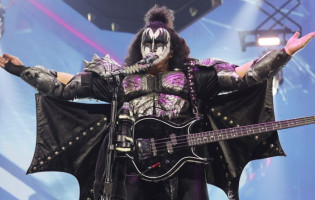Taylor Swift has made it clear to the world she controls her brand, and one tool the singer leverages regularly to achieve this goal is trademark law. Swift's team has been regularly filing trademark applications for lyrics and other slogans under her holding company, TAS Rights Management LLC, striking down infringers in the process. But does it really work, and is this approach for everyone?
Earlier this month, Swift moved to trademark key phrases from her music: the title of her upcoming album Reputation, her latest single “Look What You Made Me Do” and one of the lines from said single, “The old Taylor can't come to the phone right now." Swift plans to use the phrases on a variety of licensed merchandise, from t-shirts to notebooks and guitar picks. “Look What You Made Me Do” is already emblazoned across t-shirts on Swift’s online merch store, which has likely generated significant sales in conjunction with the singer’s controversial Ticketmaster Verified Fan campaign that rewards merch and music buyers with a better shot at good tickets.
This isn’t the first time Swift has tried trademarking her own lyrics, a move for which the initial application can cost anywhere from $225 to $400 per product category per trademark, with an additional $125 for each six-month extension. (Applicants can file up to five such extensions and reviving an abandoned application costs an additional $100 per product category per mark.)
But she’s had mixed success. The day before the release of her album 1989, the artist filed applications for the lyrics "Nice to Meet You, Where You Been?" and “This Sick Beat” to use across 16 categories of products. What hasn’t yet been brought to light is that most of these applications were actually abandoned in January 2017 due to “no statement of use filed,” despite applying for multiple extensions, according to legal database Justia. Today, Swift owns the rights to these two lyric trademarks only for clothing and stationery, while all other uses are, at least on paper, open to exploitation by third-party sellers. (Venable LLP and Milom Horsnell Crow Rose Kelley PLC, two of the law firms that have handled trademark applications for Swift, did not respond to a request for comment.)
Swift’s legal history shows that the trademark registration process can also be unpredictable, if not lengthy. Securing the “Speak Now” trademark for use on jewelry took Swift’s team only six months, while acquiring the “Fearless” trademark for use on digital media took seven years. All the successful 1989trademark applications appear to have taken anywhere from two to three years to register -- at which point the buzz around the album itself was fading.
Most applications are filed under “intent to use,” which, if approved, gives the applicant up to six months to give proof of the given trademark’s commercial value. This summer Taylor Swift was granted a Notice of Allowance for the trademarks “Swiftie” and “Swifties” on musical instruments, educational services and entertainment services, meaning that her team has until December 2017 to prove that these marks are being used for these specific commercial purposes.
While Swift is one of the only A-list musicians to pursue lyrical trademarks so aggressively, she is far from the first to bring trademark ambitions and battles into the public eye. In July, under BGK Trademark Holdings, Beyoncé and Jay-Zapplied to trademark the names of their newborn twins, “Rumi Carter” and “Sir Carter.” Days earlier, Asian-American rock band The Slants won a lawsuit against examiners who refused to accept the group’s application to trademark their name, on the grounds of seeming offensive and derogatory -- a battle that traveled all the way to the Supreme Court. In the realm of sports, David and Victoria Beckhamhave successfully trademarked their four children’s names in the U.K. and E.U., while Oakland Raiders running back Marshawn Lynch owns a U.S. trademark for his infamous phrase from the 2015 Super Bowl: “I’m just here so I won’t get fined.”
Not all celebrity trademark applications succeed. After a fair amount of criticism and mockery from fellow musicians, Kiss frontman Gene Simmons abandoned his application to trademark his devil’s-horn hand gesture. Rapper will.i.am failed to register the trademark “I Am,” on the grounds of likely confusion with other registered marks. Hot off the heels of the 2015 Super Bowl, Katy Perry pursued and was initially denied the trademarks for the meme-worthy “left shark,” “right shark,” “drunk shark” and “basking shark”; her holding company, Killer Queen LLC, was granted a third extension for all four marks in early September 2017.
Beyoncé and Jay-Z are waiting on the trademark status for the names of their newborn twins after their failed fight to do the same for their first born. After nearly five years, the power couple still doesn’t own the trademark to “Blue Ivy Carter” -- not just because of opposition from a competing mark (namely Blue Ivy, a wedding planning business), but also because the couple violated requirements by the U.S. Patent and Trademark Office (USPTO) that applicants actually use the mark visibly on goods and services. “You don’t want anybody trying to benefit off your baby’s name,” but the trademark application “wasn’t for us to do anything,” Jay told Vanity Fair in 2013. "As you see, we haven’t done anything.”
While the motivations behind filing trademarks for names, lyrics and other slogans can sometimes be driven by power and image control, brand-building is an increasingly lucrative pursuit for music stars as well, as the concert industry booms. Merch has expanded beyond concerts into pop-up shops and in-house label merchandising arms like Bravado and Sony Music Entertainment’s The Thread Shop; LyricFind, a lyric licensing company, will be launching its own merch business LyricMerch in the next few weeks. Revenue from this merch will go to publishers and songwriters, rather than to the labels or mechanical rights owners of the songs. The company will “work directly with artists, managers and labels on promotional partnerships that can include trademarked items like the artist name, logo and other images, in addition to the lyrics,” says LyricFind CEO Darryl Ballantyne.
Enforcing a trademark can be more difficult than obtaining one, though, especially in the digital age. There are still several dozen unauthorized items for sale on Etsy with lyrics from the likes of Bruno Mars, Perry and Swift. Beyond music, however, companies frequently supervise only their most coveted trademarks, while intentionally compromising those that are supposedly less important in terms of loss of profits. For instance, Disney is fostering more lenient relationships with small DIY shops that use the company’s name, logo and other properties, because they recognize the value in collaborating with rather than shutting down fan activity -- and, in turn, revealing what products these fans are most excited about. As Harvard Law School Professor Rebecca Tushnet put it, “It looks bad to sue your fans if they're doing it because they are your fans.”
Nonetheless, Ballantyne says the popularity of trademarking is likely to grow among artists: “I think we’ve only seen the tip of the iceberg, and it’s going to turn into more of the rule, as more and more pieces of value emerge in the business.”








